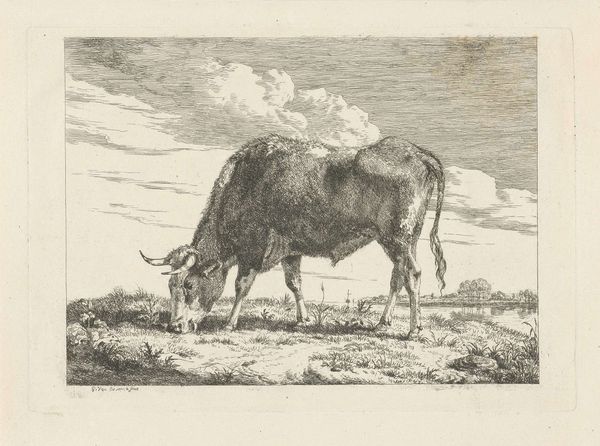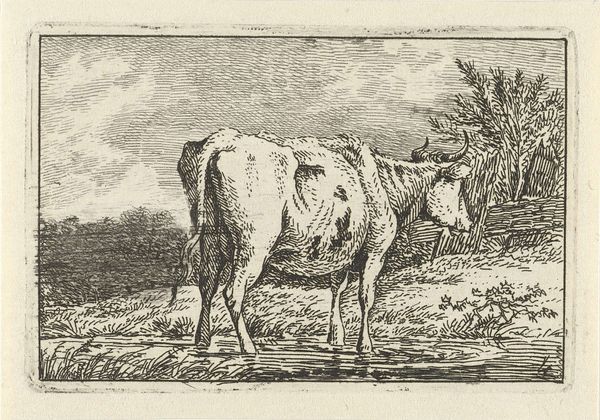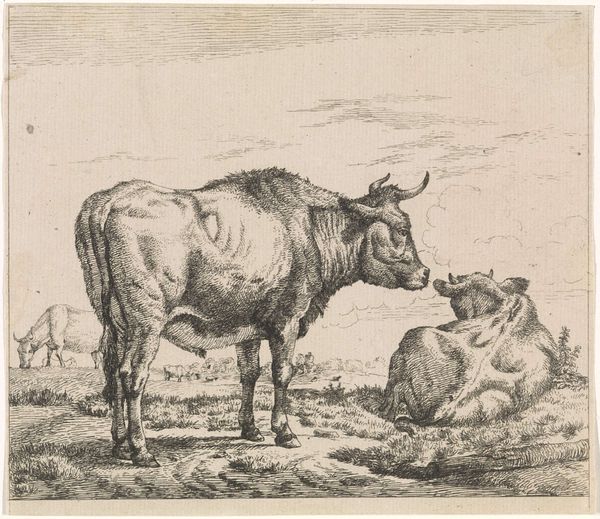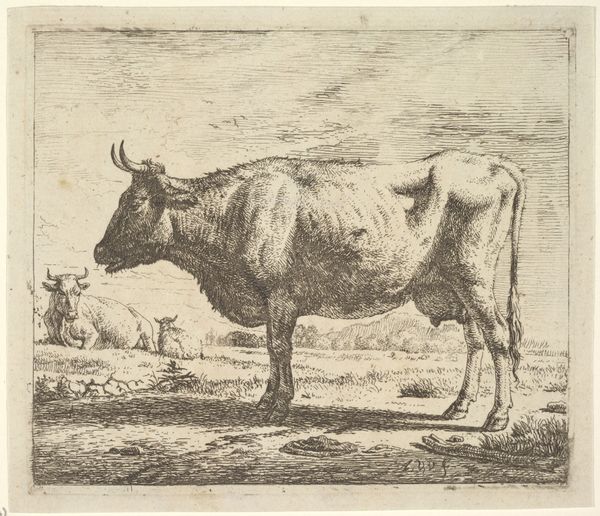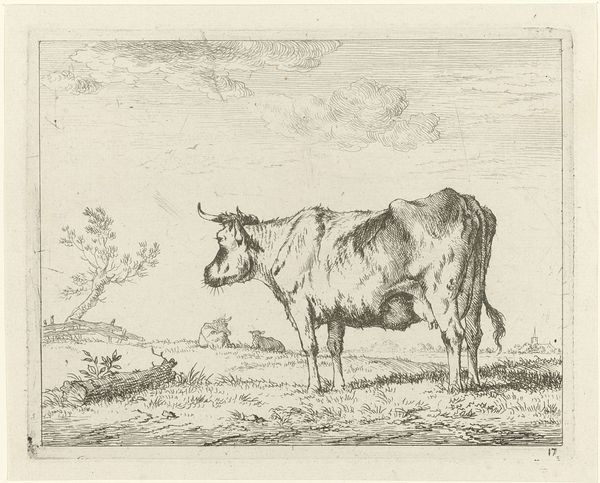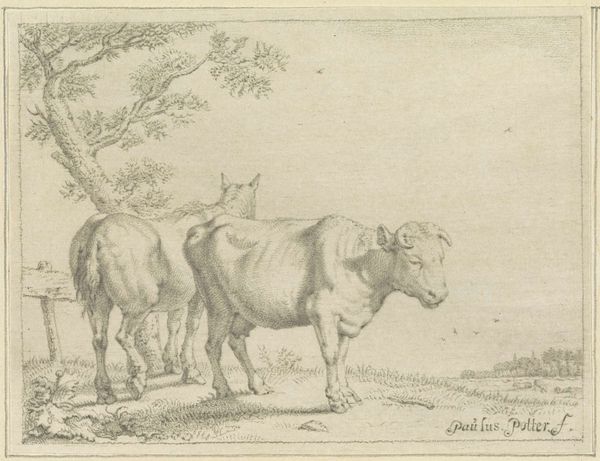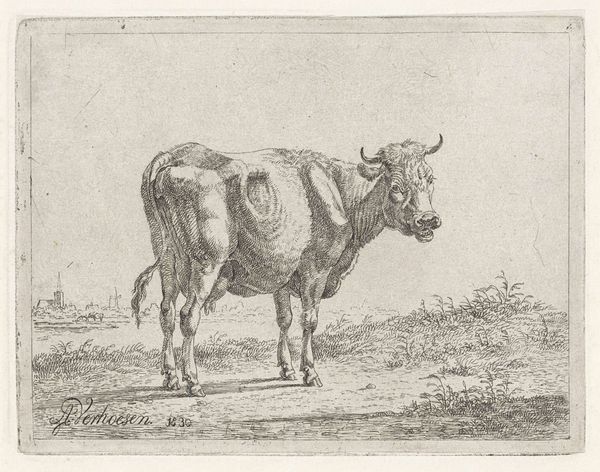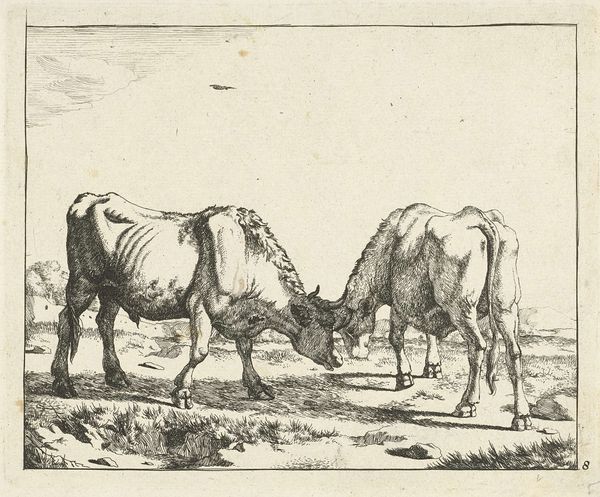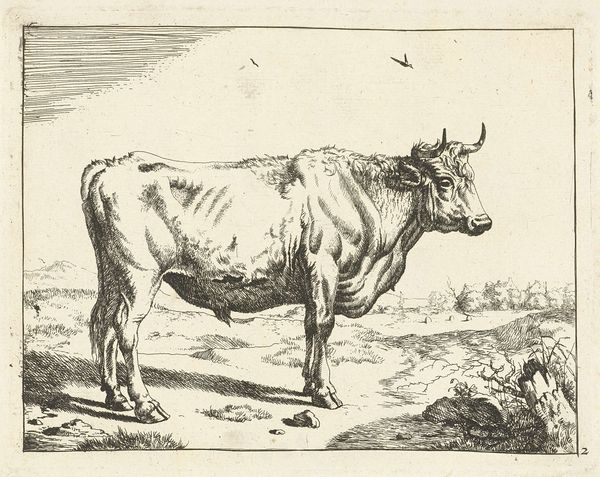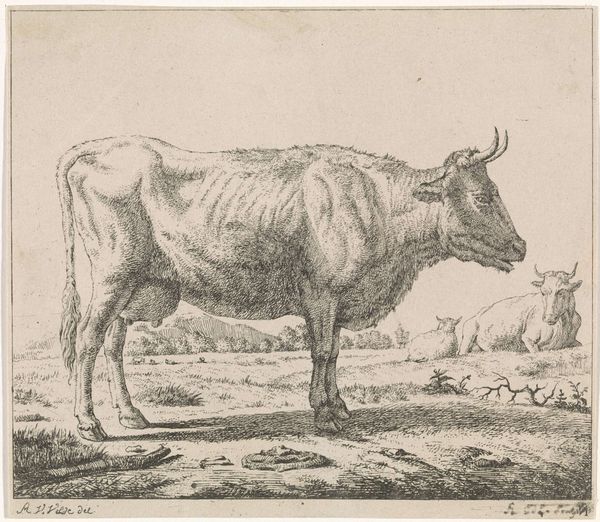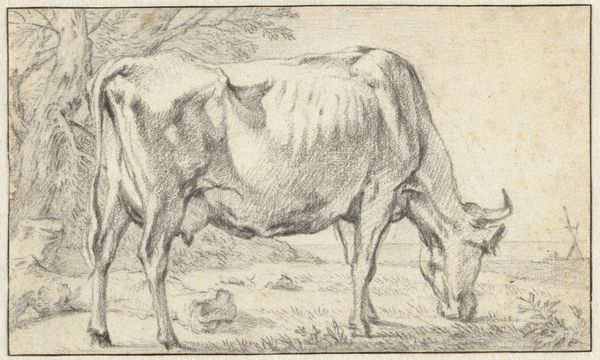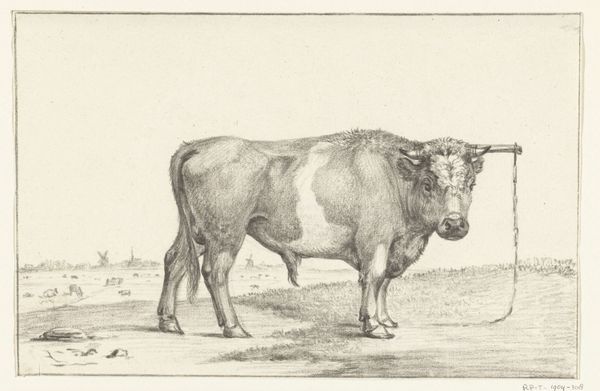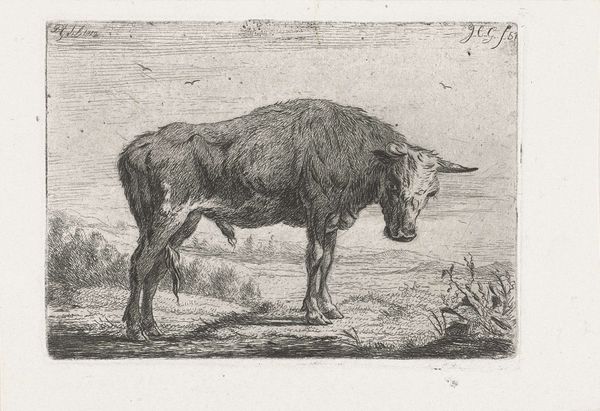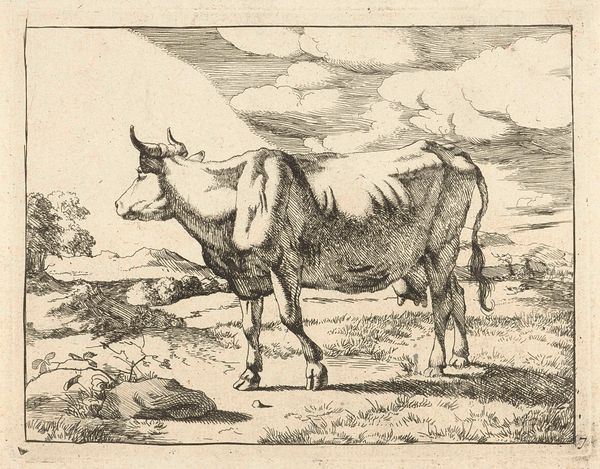
engraving
#
baroque
#
landscape
#
figuration
#
pencil drawing
#
engraving
#
realism
Dimensions: height 98 mm, width 170 mm
Copyright: Rijks Museum: Open Domain
Albert Flamen made this print called "Stieren", using a method that was the cutting edge of reproductive technology in the 17th century. The material is humble - a copper plate. But think about the labor involved. First, the copper itself had to be mined, refined, and hammered into a precisely flat surface. Then, the artist used a sharp tool called a burin to carve the image in reverse. Ink would have been forced into these lines, and then the plate pressed against paper, transferring the image. This process could be repeated many times to create multiple impressions. The beauty of printmaking lies in its reproducibility, allowing images to be disseminated widely and cheaply. This had huge social and economic implications. It democratized art, making it accessible to a broader audience beyond the wealthy elite, while enabling artists to reach new markets for their work. Considering the materials, making and context gives us a fuller appreciation of the artwork.
Comments
No comments
Be the first to comment and join the conversation on the ultimate creative platform.
